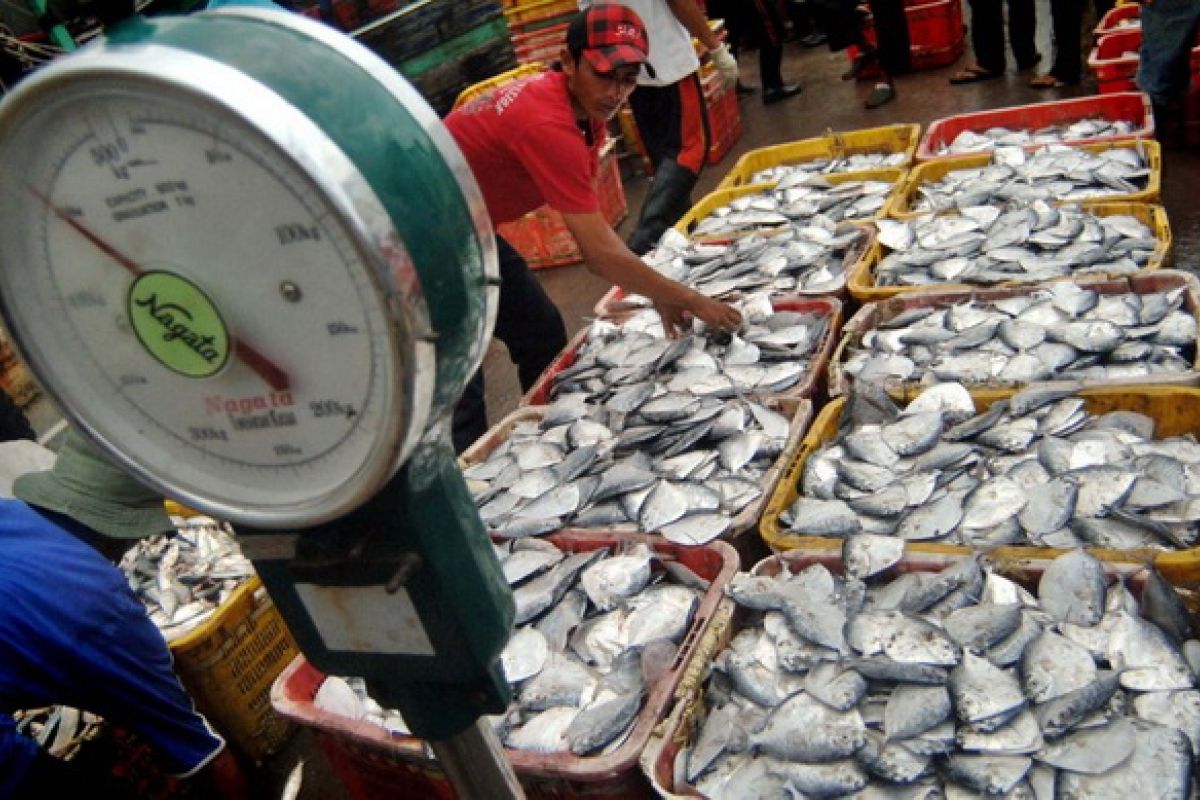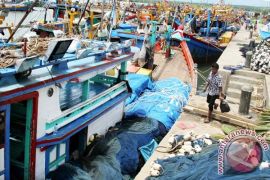"We have asked the rector to prepare three programs to support the maritime entrepreneurship."Jakarta (ANTARA News) - The government needs to produce graduates who have entrepreneurship skill so that its target to multiply the country`s fishery production and to increase it by about 300 percent in the coming five years from the current level of about 10 million tons per annum would be achieved.
To achieve the goal, the Ministry of Maritime Affairs and Fisheries (KKP) is cooperating with the Bandung Institute of Technology (ITB) and the Bogor Institute of Agriculture (IPB) to build a first fishery institute in Indonesia.
"The KKP in cooperation with the ITB and IPB will build a fishery institute with the assistance of South Korea," Maritime Affairs and Fisheries Minister Fadel Muhammad said Wednesday.
Besides the plan to build a fishery institute, the ITB was also encouraged to produce its own graduates with maritime entrepreneurship. "I hope that ITB would pioneer the production of graduates who have maritime entrepreneurship in order to help develop and utilize the country`s maritime resources," the minister.
He said that the construction of the fishery institute would start in 2012. All funds that would be used to build the first fishery institute in Indonesia would come from South Korea. "The assistance worth Rp350 billion would fully be provided by South Korea," the minister said.
It would be located in Subang district, West Java. The location for the development of the fishery institute is being arranged. "We are now arranging the location for the construction of the fishery institute," Fadel Muhmmad said.
In his public lecture at the ITB, the minister said he had met with ITB Rector Prof Akhmaloka and discussed the idea to produce maritime entrepreneurship. In order to achieve the goal, three programs have to be done.
"We have asked the rector to prepare three programs to support the maritime entrepreneurship," the minister said.
The first program is to produce the country`s fish culture concept. The second program is the salt management with maritime technique, and the third one is to produce S2 graduates majoring in fisheries who are ready to be fielded.
The three programs for producing entrepreneurship in the maritime sector were expected to start this year. "We are planning to start it this year," the minister said adding that to carry out this program his ministry has prepared a budget of Rp460 billion.
ITB Rector Akhmaloka hailed the minister`s idea to produce graduates with maritime entrepreneurship development skill. "If 30 percent of ITB graduates have the maritime entrepreneurship skill, the vast maritime potentials of Indonesia could be further developed," he said.
After all, in an effort to increase the country`s fish production, the Maritime Affairs and Fisheries Ministry is also focusing on the development of Minapolitan areas (fishery-based development cities) in 41 Indonesian regions this year.
In line with Minapolitan program and maritime fishery development, the maritime affairs and fisheries minister had set a target for fish production in 2011 at 12.26 million tons. This figure constituted an increase of 13 percent of the 2009 production which was 10.85 million tons.
"In 2011, the ministry is focusing on formation of Minapolitan areas consisting of nine fishing based sites, 24 aquaculture sites, and eight central salt sites," Fadel Muhammad said during the ministry`s 2011 outlook meeting sometime ago.
The fish production target set for 2010 was achieved, both from catching and aqua-culturing activities. "Fish production from catching and culturing operations amounted to 10.83 million tons in 2010, surpassing the target of 10.76 million tons for the year," he said.
According to KKP Sokesman Yulistyo Mudho, the country`s per capita fish consumption in 2010 was recorded at 30.47 kg per annum, an increase from 29.08 kg in 2009. "We hope production increase would be followed by increase in per capita fish consumption," he said.
Yet, the People`s Coalition for Fishery Justice (KIARA) has criticized the government pro-export policy which it said had caused high fish imports to meet domestic fish consumption.
KIARA Secretary General Riza Damanik told a press conference on Wednesday that the export orientation of the national fishery policy had depleted fish raw materials that force domestic fish consumers and companies to depend on fish imports.
He said the request for the issuance of fish import licenses to import three million tons or about 60 percent of national fish catches over the past two months was proof of the increase fish imports.
A big import volume would of course have negative impact or could destroy national economy, particularly the economy of traditional fishermen, and that the ministry of trade and ministry of maritime affairs and fisheries did not need to take counter-productive steps in this case.
Optimizing and using existing fish resources and canceling raw fish exports in the coming ten years could help improve the fishery business in the country.
The KIARA secretary general said that the first step that could be taken was to set and maintain the needed national fish quota, including considering the increase in the fish consumption at home in the coming five years. With this way the domestic need for fish at home would guaranteed.
(T.A014/HAJM)
Reporter: by Andi Abdussalam
Editor: Priyambodo RH
Copyright © ANTARA 2011











